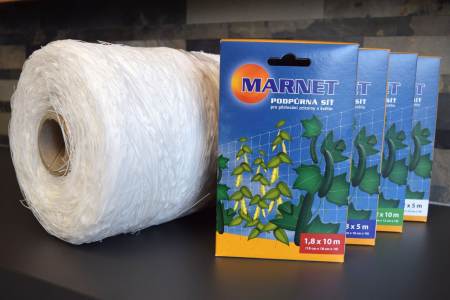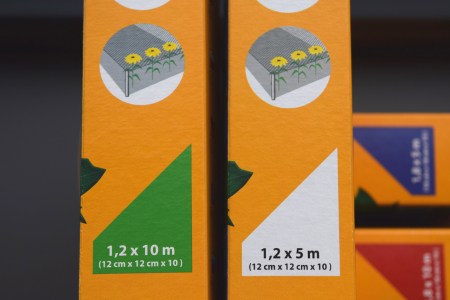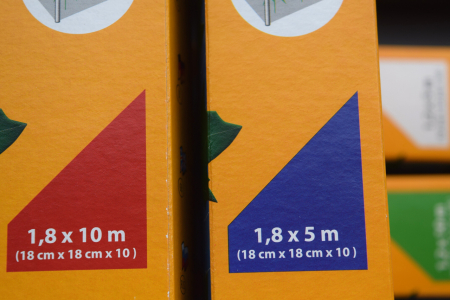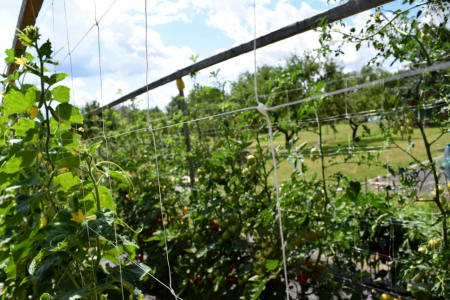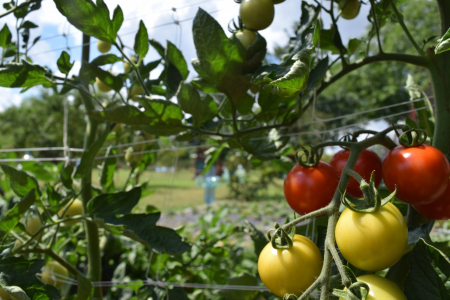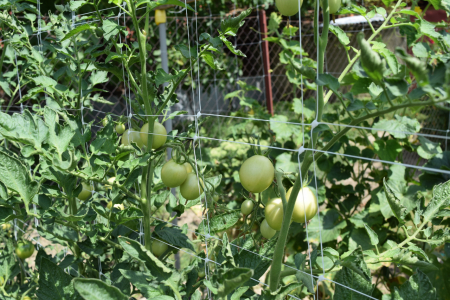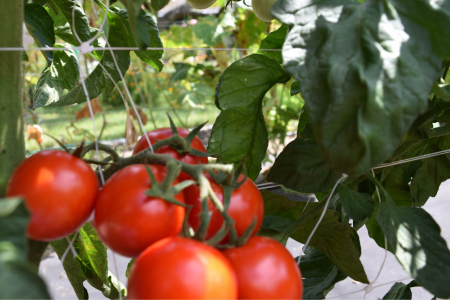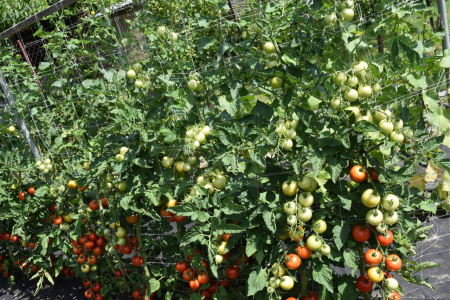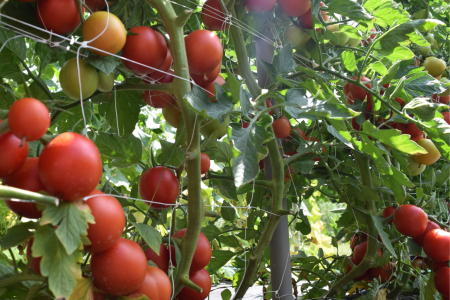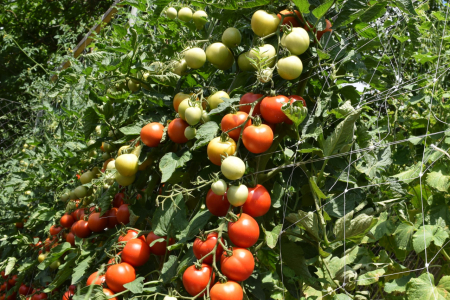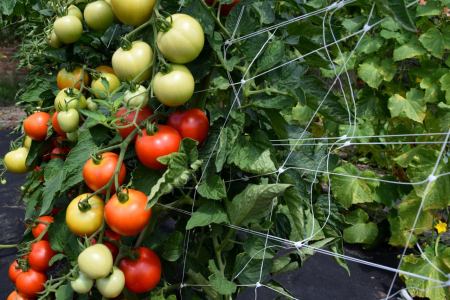
Two types of vertical gardens are popular among gardeners and farmers:
- Seedlings planted in rows (in pots, baskets, or sacks) above each other.
- Seedlings all planted in the ground, so their sprouts are forced to grow upwards instead of crawling around.
We focus on the latter type of vertical gardens in this article — take a look at their main benefits for farmers, and read our advice on how to choose the best garden support nettings.
Benefits of Vertical Gardening
Healthier Plants
With sprouts lying on the ground, rot and mold are more likely to destroy your precious crop during rainy days. That’s why vertical gardens save time and money — you don’t have to pay that much attention to protecting your plants. Lifted above the ground, vertically growing plants are naturally better protected against wetness.
Clean & Colourful Vegetables
Fruit and vegetables never get muddy or dirty, and the sun shines on them from all sides, ripening and colouring them evenly.
Easy Harvest
No need to bend over backwards, literally. Vertical gardens relieve your back.
How to Choose Garden Mesh Support Netting
Support nettings differ in mesh eye size — the most common are 12×12, 15×15, or 18×18 centimetres (support nettings are always 10 mesh eyes high). Different sizes of plant support netting are suitable for different vegetables and fruit.
| Mesh Eye Size | Netting Height | Suitable Vegetables |
|---|---|---|
| 12×12 | 120 cm |
sweet peas smaller pole beans |
| 15×15 | 150 cm | pole beans |
| 18×18 | 180 cm |
gherkins cucumbers pole beans |
Marnet Support Netting is made of thin strands (less than 1 mm in diameter). “They’re extraordinarily firm despite their thinness — you can’t rip them by hand. We reinforced the strand intersections so that this type of mesh netting withstands the weight of heavier crops — think cucumbers and large tomatoes,” says Milan Polouček, the Managing Director of Milmar, producer and supplier of garden support netting.
Marnet Support Netting is UV-resistant and has great longevity.
How to Install Garden Support Netting
Concrete poles and vineyard poles are used to hold garden support nettings in place. To create a thriving vertical garden or field, measure the designated area well. Pay attention to the distance among individual poles — especially if you are planning to pass among them with a wide tool or a garden vehicle.
Most vineyard poles have a metal construction on top. Use it to pull steel wires through, then attach the garden support netting to them. The top construction is shaped like the letter T — garden netting can be attached to it from both sides.
When growing tomatoes and gherkins, planks are often used to create plant support frames.
Use hooks to secure the bottom part of the garden netting. “Don’t place garden netting too close to the ground — plants only need support when they grow to a certain height. Mesh netting should be placed 15 to 20 cm above the ground,” explains Milan Polouček.
Garden support nettings are a popular solution also for greenhouses.
Longevity of Vertical Garden Support Nettings
Marnet Garden Support Netting is UV-resistant and lasts for years. Whether it’s just a few years or more depends on the upkeep. “A lot of farmers get rid of dead plants at the end of each season, pull out the hooks that keep the netting stretched down, roll the nets up and secure them. At the beginning of a new season, they roll their support netting back down, stretch it to the ground using hooks, and they’re ready to plant new seedlings,” describes Milan Polouček.
In such a case, you don’t need to buy garden support netting anew, but the financial savings require your time and effort. That’s why some farmers prefer buying new garden nettings for each season.
A well-stretched Marnet Support Netting makes a heavy-duty plant plant support frame — it holds up ripe tomatoes of considerable weight.
Garden Support Nettings for Farmers
Need garden mesh netting for large gardens, farms and fields? Contact us and buy Marnet Support Netting in bulk.
